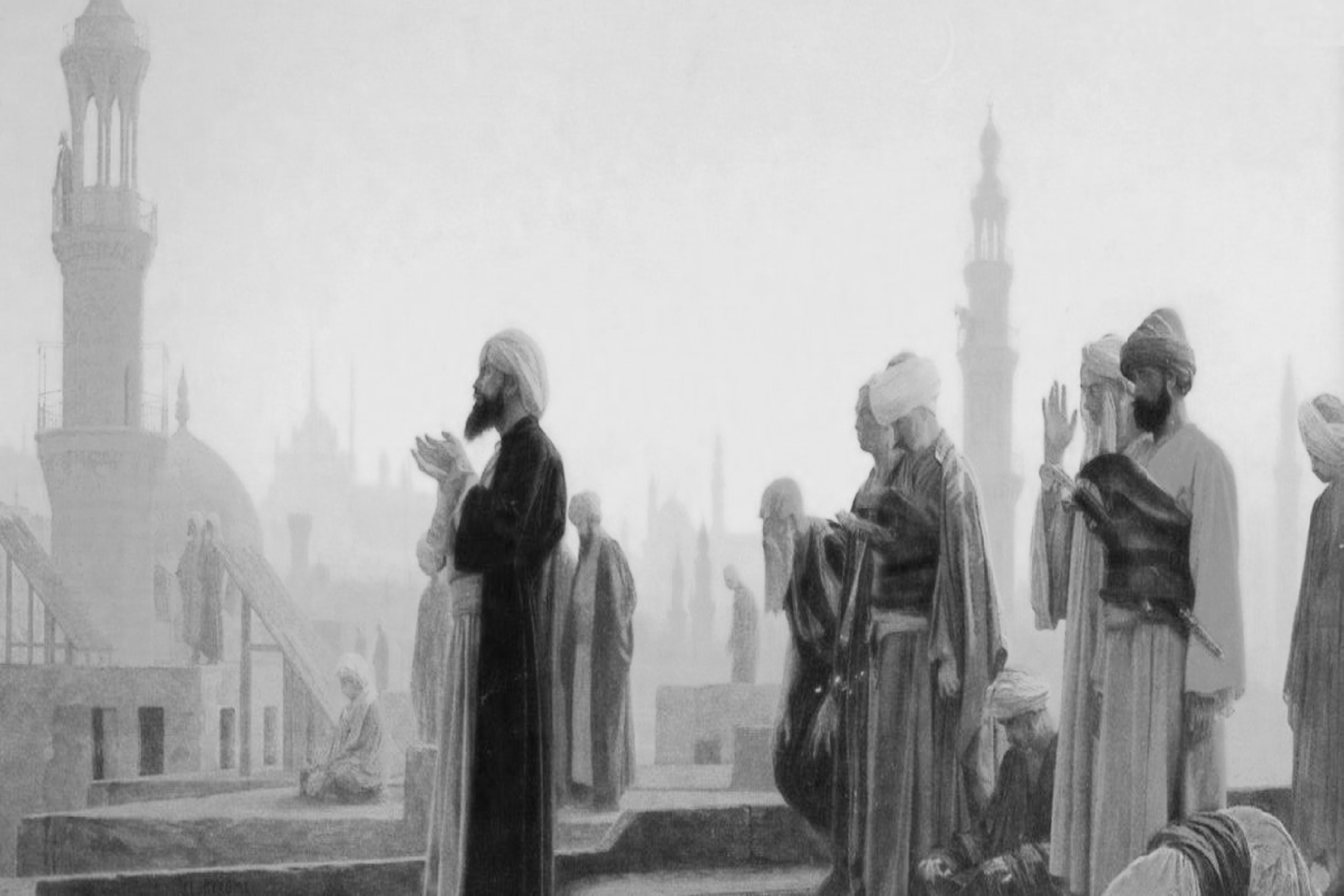Is companionship a good enough reason to claim caliphate?
When it came to selecting a successor to the Holy Prophet (s.a.w.a.) after his martyrdom, the foremost argument advanced by certain Muslims revolved around companionship. Rather, they had no other argument in their favour.
But is companionship of the Prophet (s.a.w.a.) a criterion for selection of the caliph?
It is clear that neither the Muslims of that era nor the present day Muslims have anything better or compelling to justify the caliphate of the pseudo caliphs.
The argument of companionship is a poor and hollow one since it lacks merit and even if it is taken at face value, it fails to identify suitable candidates for caliphate.
Argument of companionship smacks of opportunism
Nobody is fooled with an argument like companionship. It was forwarded as an afterthought by a few Muhaajiroon (immigrants) to the Ansaar (helpers) when the leadership of the nation looked like it was slipping from the grasp of the Muhaajiroon contending with a large Ansaar audience in the Saqifah. Of course, both the groups were companions, but the Muhaajiroon claimed an edge based on the thirteen additional years of companionship and the fact they were from the Quraish, the same tribe as that of the Holy Prophet (s.a.w.a.)
Without venturing into the details on the companionship debate in Saqifah, it is worthwhile to first evaluate whether such an argument even holds any merit. Perhaps, no other comment demonstrates the hollowness and opportunism behind the companionship argument than the one made by either Imam Ali Ibn Husain (a.s.) or his son Zaid Ibn Ali.
‘Had it been possible for the nation to seek kingship without associating with his (s.a.w.a.) prophethood, they would most certainly have turned away from his prophethood.’
[Kashf al-Mahajjah by Sayyed Ali Ibn Moosa Ibn Taoos (r.a.) p. 125; Bait al-Ahzaan fi Masaaib Sayyedah al-Niswaan al-Batool al-Taherah Fatima al-Zahra (s.a.) by Shaikh Abbas al-Qummi (r.a.), p. 74]
Relationship is superior to companionship
Any Muslim with a shred of wisdom can see that companionship at best can only serve as one of the criteria to select the caliph and not its only criterion. Relationship combined with companionship enhances the eligibility for caliphate.
We advance some of the instances when this argument was made to the Muslims:
- Then Ameerul Momineen (a.s.) turned towards Abu Bakr and recited the following couplets:
Then if you have gained authority due to counsel,
then what counsel is this in the absence of the counselors;
and if you have attained it (the caliphate) due to nearness (of the Prophet),
then there are others who are more rightful than you for the Prophet’s nearness.
He (a.s.) often said – How strange! The caliphate can be obtained on the grounds of companionship (of the Prophet), but cannot be obtained on the grounds of both relationship and companionship?
[Nahj al-Balaaghaah, hadith 190; Sharho Nahj al-Balaaghaah, vol. 18, p. 416; Mustadrak al-Wasail, vol. 3, p. 94]
b. When the twelve leading companions from among the Muhaajiroon and Ansar opposed Abu Bakr’s selection, it was the relationship argument that rallied them against the weaker companionship argument. ‘Abdullah Ibn Mas’ood rose and said
– O group of Quraysh! You and all the good ones amongst you well know that Ahle Bait (a.s.) of the Prophet (s.a.w.a.) are closer to Allah’s Prophet (s.a.w.a.) than you. If you claim the position of caliphate is based on proximity to Allah’s Prophet (s.a.w.a.) and claim such a precedence for yourself, then the Ahle Bait (a.s.) of the Prophet (s.a.w.a.) are more proximate than you and precede you. Moreover, Ali b. Abi Talib (a.s.) is the Master of the Affair (of caliphate) after the Prophet (s.a.w.a.) then grant him what Allah has placed in him and for him and do not turn your back…’
He (a.s.) often said – How strange! The caliphate can be obtained on the grounds of companionship (of the Prophet), but cannot be obtained on the grounds of both relationship and companionship?
[Al-Khesaal, vol. 2, p. 464, chapter of 12 traits] c. In a beautiful poem – Hassaan b.
Thabit al-Khazraji, the poet of the Holy Prophet (s.a.w.a.), clearly establishes the superiority of Ameerul Momineen (a.s.) over all companions by virtue of his relationship. It must be noted that these verses were penned in the lifetime of the Messenger of Allah (s.a.w.a.) an indication that even Hassaan knew this was a debate that would surface after his (s.a.w.a.) martyrdom. So how could he (s.a.w.a.) not have known it?!
‘Repentance is not accepted from the repenting one Except through the love for the son of Abi Talib (a.s.)
He is the brother of the Messenger of AlIah (s.a.w.a.), rather his son-in-law And the son-in-law cannot be equated with the companions
And who can be like Ali? And surely The sun was made to return for him from the West The sun was made to return for him with its brilliance Shining bright, as if the sun had never set’
[Bashaarah al-Mustafa (s.a.w.a.), vol. 2, pp. 147-148]
The successor is always from the progeny never the companions
History is witness that every divine Prophet has chosen his successor and this man was always from his progeny. These two traits – endorsement by the prophet and relation with the prophet – were a constant for all divine Prophets, who incidentally were inferior to the Holy Prophet (s.a.w.a.). However, the Muslims consider our beloved Prophet (s.a.w.a.) – the last and the greatest Prophet – to have made no arrangements whatsoever for guiding the Muslims!
Ameerul Momineen (a.s.) informed: Every prophet leaves behind a successor from his progeny excepting Isa Ibn Maryam (a.s.) who did not have a progeny.
[Al-Yaqeen, p. 406; Behaar al-Anwaar, vol. 26, p. 286 from Kashf al-Yaqeen]
Companionship is temporary, relationship is enduring
Companionship can never be an enduring criterion for selection of caliph. It can only be a criterion, if at all, for the first few generations of caliphs. There are not that many companions and a time comes when companions simply run out. As early as the 60 A.H. we had Yazid the accursed, who was not a companion, taking charge of caliphate. Why he was appointed as a caliph despite not being a companion and despite other more deserving companions like Imam Husain Ibn Ali (a.s.) being present amidst the Muslims, is a question that no one wishes to answer.
Even the Salafis admit that (their version of) Islam at best survived in its pristine state only for the first three generations after the Prophet (s.a.w.a.). It means that even if one were to appoint companions, then this would be valid only for the first three generations of companions. What do the Muslims do afterwards when there are no more ‘eligible’ companions? Didn’t the Muslims, who were in a hurry to appoint themselves as caliphs, think of this possibility that was to befall the Muslims only a few years later? However, if you take the relationship argument for caliphate, then you create a more enduring criterion for the Prophet’s (s.a.w.a.) successor. This is the decision of the intellect.
As far as traditions go, this is in fact the basis for selecting the Holy Prophet’s (s.a.w.a.) successor what with numerous traditions identifying his (s.a.w.a.) household as the caliphs of the nation. There are entire chapters dedicated to the specific prophesy of Allah’s Messenger (s.a.w.a.) that Islam would always be governed by twelve caliphs, all of whom would be from the Quraish.
Who is a better companion than Ali b. Abi Talib (a.s.)?
We have already proved that Ameerul Momineen Ali b. Abi Talib (a.s.) holds a greater right to caliphate going by the dual criteria of relationship combined with companionship. So there is no further need to prove anything. However, for those who continue to believe that companionship is superior to companionship and relationship, we want to point out – even if one were to go by companionship alone – Ali Ibn Abi Talib (a.s.) stands head and shoulders above the tallest companion. Rather, he is superior to all mankind, second only to the Holy Prophet (s.a.w.a.)
Ali Ibn Abi Talib (a.s.) has no equal among mankind
Jabir Ibn Abdullah Ansari narrates from the Holy Prophet (s.a.w.a.) – Ali is the best of mankind; one who doubts it is an infidel.
[Taarikh al-Baghdaad, vol. 4, p. 421]
This tradition has also been recorded with slight variations by:
- Ibn Hajar al-Asqalaani in Tahzeeb al-Tahzeeb vol. 9 p. 419
- Ahmed Ibn Hanbal in Manaaqib-o-Ali Ibn Abi Taalib (a.s.)
- Kanz al-Haqaaeq p. 92
- Al-Riyaaz al-Nazarah
- Musnad of Abu Ya’la al-Mawsili al-Hanbali
- Zakhaaer al-Uqba p. 96 of Mohib al-deen al-Tabari
- Majma al-Zawaaed vol. 9 p. 116
- Al-Mojam al-Awsat vol. 9 p. 288
Not just Ali Ibn Abi Talib (a.s.), even his Shias are the best of creation
Regarding the 9th verse of Surah Bayyinah (98):
(As for) those who believe and do good, surely they are the best of creation.
In the exegesis of this verse, many scholars have commented that this verse refers to Ali Ibn Abi Talib (a.s.) and his Shias, viz:
- Jaame’ al-Bayaan fi Taweel al-Quran (famous as Tafseer-e-Tabari) of Muhammad Ibn Jurair Tabari
- Tafseer al-Durr al-Manthoor of Jalaal al-Deen Abd al-Rahman Ibn Abi Bakr al-Suyuti
- Al-Sawaaeq al-Muhriqah of Ibn Hajar al-Makki
Ali Ibn Abi Talib (a.s.) superior to companions
Some Muslims claim that superiority is for companions like Abu Bakr, Umar, Abu Ubaydah Jarrah, Usman Ibn Affaan, etc. But the truth is superiority is for none save Ali Ibn Abi Talib (a.s.) and his infallible eleven descendants (a.s.).Here are some of the traditions on the topic:
- Umar Ibn Khattab narrates that the Prophet (s.a.w.a.) informed him – None has earned virtues like those of Ali. He takes his companions towards guidance and away from destruction.
[Al-Riyaaz al-Nazarah Fi Manaaqeb al-Asharah, vol. 1, p. 277 narrating from Al-Mojam al-Sagheer, vol. 1, p. 241]
2. Imam Ahmed Ibn Hanbal declares – Virtues have not been recorded for any companion of the Prophet (s.a.w.a.) like they have been recorded for Ali Ibn Abi Talib (a.s.).
[Al-Mustadrak Alaa Al-Sahihain, vol. 3, p. 107] iii. Imam Ahmed Ibn Hanbal and Ismail Ibn Is’haaq al-Qaazi narrate – None of the companions of the Prophet (s.a.w.a.) have virtues recorded from good chains like Ali Ibn Abi Talib (a.s.). Similarly Ahmed Ibn Shoaib Ibn Ali al-Nesaai – the author of Sunan which is among the Sihaah Sittah – has also admitted this fact.
[Al-Istee’aab, vol. 2, p. 466]
Likewise other scholars of Ahle Tasannun have documented this fact in their books including:
- Ibn Hajar al-Makki in Al-Sawaaeq al-Muhriqah p. 72 – a book written specifically to condemn the Shias.
- Ibn Hajar al-Asqalaani in Fath al-Baari fi Sharhe Sahih al-Bukhaari vol. 8 p. 71
- Al-Shablanji in Noor al-Absaar p. 73 iv. Ibn Abbas narrates – Three hundred Quranic verses have been revealed related to Ali (a.s.).
[Taarikh al-Baghdad, vol. 2, p. 221]
As for the others, they are no match for Ali Ibn Abi Talib (a.s.). Even Zaid Ibn Haarith – the Prophet’s (s.a.w.a.) adopted son – was greater than the aforementioned companions. In a widely documented tradition, Umar Ibn Khattab says: Zaid Ibn Haarith was more beloved to the Prophet (s.a.w.a.) than me.
After abandoning the Messenger of Allah (s.a.w.a.) in the Battles of Ohod and Hunain – two incidents documented in the Majestic Quran – a person would have to be both a disbeliever and a shameless human being to claim companionship, much less caliphate. Although we do not take companionship as any indicator of caliphate and divine blessing, but if companionship was a criterion, then certainly Ali Ibn Abi Talib (a.s.) is beyond comparison. Besides, relationship combined with companionship is undoubtedly superior to just companionship. Any way one looks at it and any criterion of virtue one wishes to apply, Ameerul Momineen Ali Ibn Abi Talib (a.s.) is the true and divine caliph of the Messenger of Allah (s.a.w.a.).



